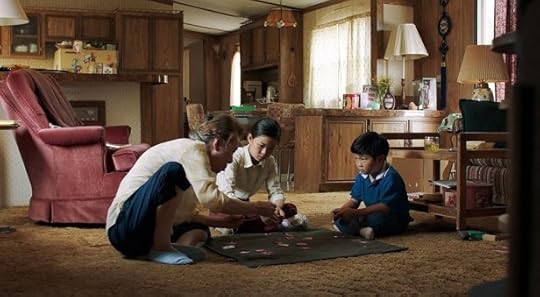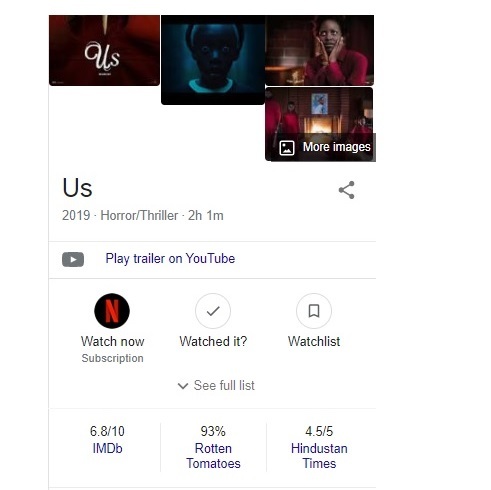Sneha Jaiswal's Blog, page 262
May 24, 2021
How Was The First Zombie Created in ‘Army of the Dead’?
Warning: Graphic violent content & spoilers ahead
Zack Snyder’s 2021 film ‘Army of the Dead’ has spawned a cottage industry of Quora questions. Okay, maybe that’s an exaggeration. But the fact is – fans have been left with a lot of questions unanswered. And one of the first things one wonders about the flick is – how was that first zombie created?
In the film, it takes only one Zombie to turn the entire city of Las Vegas into flesh eating un-dead humans. But the viewer is never explicitly informed how he came into being. However in the beginning, it’s made pretty clear that he is being handled by the U.S govt/military and was being moved to a different facility. He is referred to as ‘payload’ and the military guys don’t even know what’s in the container that they are moving.

While the on-ground officers are not aware of what the savage-looking thing is, their top bosses are well aware of just how lethal he can be. One can only assume that the first Zombie was a result of some deliberate experimentation and that he either killed the creator or the creator died due to some other accident or maybe even suicide. Because whoever was responsible for the creation is definitely dead in the film, otherwise top U.S government officials wouldn’t have been looking for a sample of one of the alpha zombies to recreate them as “war weapons”.
There is also another possibility – that the Zombie is an alien. When two of the guarding officers are playing a guessing game of what the ‘payload’ in the container could be, one of them says “it’s an alien”. Also, those theories do make sense, because unlike all the regular zombies, when the first Zombie is shot in the head, there’s some blue blood that splatters from his brain. So the alien theory by some fans can be quite right.

The biggest explanation as to why Snyder did not reveal the origins in ‘Army of the Dead’ is pretty simple – viewers can look forward to the origin story of the Zombie Zeus in the sequel. Zack Snyder has already told the world that he plans on making a bigger/crazier sequel to the film. The climax definitely left a lot of scope for a follow-up story – Vanderohe is shown with a bite at the end and he is heading to Mexico city in a private jet. We can expect some Mexico mayhem in the next one!
This article was inspired by a Question on Quora.
Do check out podcast out by the same name on YouTube.
Embedded below is a Zombie themed episode. Do subscribe!
May 23, 2021
‘Minari’ Review – Bitter-Sweet & Slow
The Wikipedia page for the 2020 film ‘Minari’ directed by Lee Isaac Chung rightfully has child-actor Alan Kim on the promotional poster – that little boy’s character might have a weak heart, but he is THE HEART of the film.
‘Minari’ is about a Korean immigrant family that has just moved to a large plot of farmland in Arkansas, away from the bustling. Jacob Yi (Steven Yeun) dreams of growing Korean vegetables on his farm, while his wife Monica (Han Ye-Ri) isn’t too convinced about living this new life and wants nothing but to go back to the city because their young son David has a heart condition. Their already troubled relationship faces more challenged when Monica’s mother Soon-ja comes to live with them. David and his older sister are not to thrilled with the arrival of their grandmother or of all the traditional Korean food she wants them to eat.
The film has a very slow start, with the couple having a mind-numbingly boring job that involves ‘sexing chicks’ – they spend their time segregating male & female chicks at work. David’s interactions with his grandmother are the primary source of entertainment and endearment in this drama. Alan Kim is an absolute winner as the sweet, funny little boy, who thinks Soon-ja neither looks, nor acts like a typical grandmother at all. Youn Yuj-Jung was equally brilliant and entertaining as the Korean granny who loves playing cards and watching TV.

The film is visually quite interesting, with most scenes unfolding the Yi family’s farm and their large trailer home. While Jacob gets busy trying to grow vegetables in his farm with an eccentric-religious war veteran helping him; Soon-ja slowly starts to bond with her grandson David and shows him how to plant ‘Minari’ a Korean water-celery which she claims can ‘grow anywhere’. It’s this plant ‘Minari’ that is perhaps metaphorical for the human spirit, specifically those of immigrants – with just a little support from the surrounding, they can grow into constructive citizens in any part of the world.
Director Lee Isaac Chung has used a lot of elements from his own personal life, making the movie real and perhaps even slightly banal in parts due to its authenticity. Viewers with little patience may not be able to keep their interest in this drama for too long. But to those looking for a heart-warming story close to real life, with all the ups and downs that come with being part of a middle-class family, it’s a pretty good pick. Beyond the all-Asian cast, it’s a relatable tale of the aspirational class, with parents trying to manage their finances to put good food on the table while the kids focus on the fizzy-drinks in the fridge.
Actors Steven Yeun and Han Ye-Ri’s chemistry is not sizzling, but they do have a domesticated connection of a couple that has been married for many years. In the movie, their marriage is on the verge of falling apart, but an unexpected twist in the climax leaves the viewer wondering if the Yi family will be happy after all? Sometimes, life is all about starting over – that seems to be the message of Minari.
With gripping performances and a realistic script that gets slow in parts, ‘Minari’ makes for a bitter-sweet family movie that one can watch on the weekend. It’s 7.5/10 from me. The film is available to stream on Amazon Prime.
Please check out our podcast on YouTube by the same name – Abstract AF
Listen to episode 29 for some fun films to watch with the family. And do subscribe.
May 22, 2021
BTS & Lil Nas’ New Songs Have More In Common Than Release Date
While the whole world is talking about all the records the Korean boyband BTS is breaking with their latest English single “Butter”, let’s talk about something just a little different.
“Butter” was the first song I heard on May 21st 2021, the day of its release. As a fan (army), it was a good new summer song to begin your day with – the boys were dressed their best, with stunning new colored hair, like Jungkook in electric violet, Jimim with purple strands. “Butter” has pretty much the same happy, bubbly & cheery vibe like their first all-English song ‘Dynamite’.

After about an hour, YouTube suggested me a new song by American singer Lil Nas X and I thought to myself “oh wow, BTS & Lil Nas releasing music on the same day… what a co-incidence!”. The song titled “Sun Goes Down” was a completely different mood. It was poignant, personal and emotional. Nas in the new single gives us a glimpse into his younger self – a closeted gay black man struggling to come to terms with his identity.
In the video Nas sings “I wanna run away,” while he is at a prom party, feeling lost & alone. So he goes to the bathroom & starts to cry. That scene is heart-breaking and would have connected with so many people – haven’t we all at some point in our lives sought cover in the bathroom? To drown our sorrows, wash our faces and hope nobody would notice?
But Nas’ video ends in a hopeful tone, he goes back to the party, shakes off the blues and starts dancing with joy. He realises he is enough, he doesn’t need a “partner” to make prom night special. And it’s such a strong unsaid message – LOVE YOURSELF. Which also happens to be a dominant message of BTS.
Despite both songs being two worlds apart, they still share a unified theme – of being confident in your skin. In ‘Butter’, the boys are already self-assured pop-stars, sure of getting whatever they want. In the other song, Nas is on the road to getting there – where he can dance with abandon too.
It’s interesting to remember that the BTS boys had made their debut Grammy performance with Lil Nas, singing along his hit number “Old Town Road”. And BTS fans around the world know how it had been a big dream of all the seven icons – RM, Jim, Suga, J-Hope, Jimin, Jungkook, Taehyung – to be on that stage.

As a music fan, one only wishes that Lil Nas’ new song gets all the love it deserves. Both ‘Butter’ & ‘Sun Goes Down’ were released an hour apart, hours later, the difference in the views is staggering. While the ‘Butter’ video raked up over 80 million views in less than 17 hours on YouTube, ‘Sun Goes Down’ garnered over 2 million views in the same time.
Well, Lil Nas X the musician sure knows how grab eyeballs and his latest song will get there soon enough. The new single might not have instantly broken records & charts, but was quick to win over hearts.
Love from a random fan, to both BTS & Nas.
Ending of Norwegian Wood by Murakami Explained
Some readers cannot wrap their head around the ending of the popular novel ‘Norwegian Wood’ by Haruki Murakami. So we come up with two possible explanations for the cryptic climax.
Listen in to Episode 32 of Abstract AF to understand the ending of the bestseller that came out in the 1980s. And if you never plan on reading the book, we discuss the plot before breaking down the end. So hear it all out in less than 9 minutes!
May 21, 2021
‘Army of the Dead’ Review – Faster Zombies Can’t Beat Sluggish Script
Zack Snyder’s 2021 film “Army of the Dead” starts with a really good montage of mayhem in Las Vegas – a powerful fast-moving Zombie wreaks havoc in ‘Sin City’, turning it into a mass living grave of the living dead. The U.S army manages to contain the spread and cordon off the entire city.
Like the trailer suggests – the film is about a team led by Scott Ward (Dave Bautista) tasked with entering the Zombie zone to recover 200 million USD from the underground safe of a casino within 48 hours. The deadline is important because the government plans to nuke the area and finish off the horde of zombies for good.
Director Zack Snyder introduces some new tropes to the zombie genre that makes the story interesting. The zombies are no longer slow or completely dumb; but we see very little thinking by the so called ‘Alphas’ anyway. A few more new behavioral traits are also thrown in the mix. What could have been a great fast-paced ‘The Italian Job’ meets ‘The Walking Dead’, is reduced to just another forgettable zombie caper that is too long for its own good. The script is complicated by some emotional sub-plots, like Scott Ward’s attempt to reconcile with his daughter Kate (Ella Purnell) and a brief romantic diversion with another team member that was absolutely unnecessary.
Interestingly, one of the side-characters gets the most intense action sequence – actor Samantha Win who plays Chambers, flawlessly enacts an kick-ass zombie-killing spree inside the casino. So there are some gratifying scenes for those who came to see some blood and gore. However, the pace of the film is all over the place, disrupted at crucial juncture by slow emotional sequences. While the title ‘Army of the Dead’ suggests an epic bloodbath, you never get a ‘life and death’ battle between the humans and the ‘undead’ freaks. One never feels “these guys are so screwed”. Everything is too convenient and yet in the end, almost everybody turns out to be a loser in this horror-heist film.
The climax was slightly underwhelming, making fans pray for some redemptive twist, and Zack Snyder finally does throw a little spin to the tale in the end that doesn’t leave regular horror fans disappointed when the credits roll in. ‘Army of the Dead’ could have been bigger, better, faster, but if you ‘un-think’ like the ‘un-dead’, you will really enjoy this one.
It’s a 6/10 from me.
Please check out our podcast on YouTube by the same name – Abstract AF
Listen to episode 29 for some fun movie recommendations. And do subscribe.
May 20, 2021
‘Last Twilight In Phuket’ Review – The Last Episode We Deserved
Nadao Bangkok (A Thai media house) surprised fans with a special short-film starring Billkin and PP Krit from the popular series “I Told Sunset About You”. The film starts off from where the series ended and acts as a transitioning piece between the last series and the upcoming sequel titled “I Promised You The Moon”.
(Also Read – Our review of I Told Sunset About You)
Titled “Last Twilight In Phuket”, this little surprise film was just as visually stunning as the series, capturing Phuket in all its moods, from the bustling streets to it’s beautiful blue beaches. The lead pair is spending their last day together in their home-town, before they move away to the big-bad Bangkok to start their college life.
In less than 14 minutes, Director Naruebet Kuno manages to tug at our emotions again, giving us a heartwarming side-story of first-love and the pain of leaving your home for the first time. The chemistry between Billkin and PP Krit is electric, leaving viewers with the promise of a wholesome sequel. Cannot wait for season two – it will be out on May 27th.
Until then you can watch ‘Last Twilight In Phuket”.
May 19, 2021
‘Hippie’ Review – A Slice of Coelho’s Life
The 2018 novel “Hippie” is a non-fictional account of a young Paulo Coelho’s life as a long-haired Brazilian trying to see as much of the world he can, with as little money.
The book largely focuses on how the author meets a beautiful woman called Karla, who convinces him to buy a ticket for a “Magic Bus” that offers to take travelers from Amsterdam to Nepal for 70 dollars (travel cost only). Except for some of the mundane sentimental/spiritual stuff that’s peppered in, Hippie is quite an interesting read of an era that saw the rise of “free love”.
For those who enjoyed reading “The Alchemist”, they would definitely like reading this personal account of the author’s life as a man in his early 20s. Coelho’s always been good with words, however, the content’s power to hold the reader’s interest varies from title to title.
“Hippie” is written in third person and is quite fascinating, with some interesting characters, like a French father-daughter duo traveling around the world together, each with their own personal motive.
What really works for “Hippie” is how the author manages to detach himself a little and write about himself in a way most writers cannot. He does not shy away from showing us moments in his life were he would be considered “weak” or “cowardly”. Nowhere do you feel like it’s a glorified or embellished account. It’s a little too philosophical for my liking, but has enough story to hold the reader’s attention.
Please check out our podcast on YouTube by the same name – Abstract AF
Listen to episode 15 – about controversial graphic novels. Do subscribe.
May 18, 2021
‘The Woman In The Window’ Review
Some viewers might have to do a double-take when they see the 2021 psychological-thriller ‘The Woman In The Window’ starring Amy Adams, because they may not recognize her as the actor who plays Lois Lane in the Superman universe. Adams is Anna Fox in this 2021 flick, a middle-aged frazzled woman who suffers from Agoraphobia.
Agoraphobia is an anxiety disorder that makes people fearful of leaving their homes or entering certain places. But it’s clear from the beginning that Anna’s disorder is perhaps new, because she herself is a child-psychologist and seems to have been recently separated from her husband and has a young daughter. Anna spies on her neighbors when she is free and things take a turn when she witnesses the murder of Mrs Russell. But when the cops turn up for their investigation, turns out Mrs Russell is very much alive. So who did Anna see being killed? Or did she even actually see someone being killed? That forms the rest of the mystery, including a traumatic incident in Anna’s own past that leads to her mental-health issues.
Amy Adams is quite brilliant as the mentally fragile Anna Fox; she looks tired, exhausted and on the verge of a nervous breakdown. The viewer is perhaps left wanting a little more of Julianne Moore, who has a very small cameo as Mrs Russell, the woman who is murdered. Gary Oldman as the abusive Mr Russell and Fred Hechinger as his teen son Ethan Russell however felt jarring in their roles.
Despite being largely shot in just one place (Anna’s home), the movie is visually interesting, with the house becoming a character in itself. After a slow start, the plot picks steam after the murder. Anna attempts to start putting the pieces of the puzzle together, even as she struggles hard to keep her nerves intact. Just like everybody around her, the viewer begins to question her sanity too.
Things soon escalate, every little anomaly gets a decent explanation and there is a neat little twist in the end, which might begin to feel like a weak fictional exaggeration if one begins to rationalize the facts closely. The ending was almost satisfying, almost, because after a whole lot of nothing, one finally gets to see some action. The movie heavily relies on Adams, because the script is not on the stronger side. Viewers looking for a fast-paced intelligent thriller will be left disappointed.
Watch ‘Woman In The Window’ if you are looking for a psychological thriller. It’s a 6/10 from me.
Please check out our podcast on YouTube by the same name – Abstract AF
Listen to episode 29 for some fun movie recommendations. And do subscribe.
May 17, 2021
‘Us’ Horror Movie Review
The 2019 American horror-thriller ‘Us’ directed by Jordan Peele, starring Lupita Nyong’o and Winston Duke, is one of those rare few films that fall under the horror genre and yet have a more than 90% approval rating on ‘Rotten Tomatoes’. Although IMDB users are not as kind, with the movie raking a 6.8/10. That’s a good enough score for a horror movie; Asian & Indian parents wouldn’t agree.

The story follows the Wilson family, who are vacationing in their beach-house. One night, they find themselves confronted by intruders – four people who look exactly like them (but creepier) and are baying for their blood. Which side will survive? The real family or their creepy clones? That’s the rest of the story, along with answers to what the hell is going on.
The cast is fantastic – Lupita plays Adelaide Wilson, a mom who is haunted by an incident from her past, actors Shahadi Wright and Evan Alex who play her kids match up to her talent with their equally brilliant dual performances, first as the regular Wilson kids and then as the evil doppelgangers.
Deeper philosophical and metaphorical meanings aside, the plot of the film just doesn’t make much sense on the surface. Most average viewers are not going to sit and meditate on the symbolism of it all. When it comes to sheer entertainment value, ‘US’ doesn’t fare too well. It could have been more fun and more fast. The movie definitely has a few moments where the viewer would be left exclaiming “oh shit! oh shit”, especially due to some graphic violence. That’s a good sign when it comes to thriller/horror films.
Watch ‘US’ for some interesting performances and a decent enough plot-twist when the climax comes. It’s a 6/10 from me.
Please check out our podcast on YouTube by the same name – Abstract AF
Listen to episode 29 for some fun movie recommendations. And do subscribe.
May 16, 2021
Neighbors – Quick Book Review
‘Neighbors’ by Elizabeth LaBan & Melissa DePino is a sweet little non-fiction story celebrates the friendship between two women. It’s less than 100 pages long and makes for a quick, emotional read.
Quite often, our women friends are our strongest pillars and we don’t often get to see that in fiction books. In ‘Neighbour’, co-authors Elizabeth and Melissa tell the readers how they first met as 31-year-old strangers but soon became inseparable. For over a decade, they lived on the same street and their friendship grew into a deeper familial relationship. The story alternates between the two writers, so we get to see both perspectives.
Since it’s non-fiction, there is no heightened drama, no jarring twists. Just a simple story about two grown women being each other’s anchors when the weather gets stormy, preventing the other from drowning. It’s a pretty good read and most women readers would enjoy the book.
The book is also available to read for free for Kindle Unlimited subscribers.
Please check out our podcast on YouTube by the same name – Abstract AF
Listen in to Episode 31 for a spoiler-free review of the animated show Castlevania



